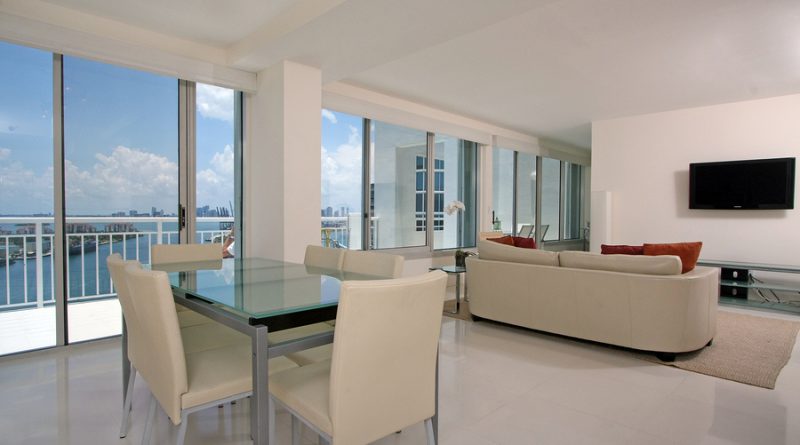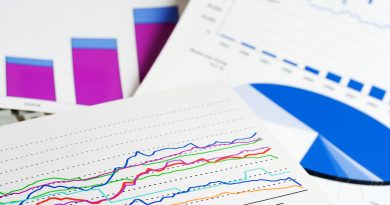At Ease: Investing in Real Estate Amid a Volatile Market
When markets are strong, the impulse is to buy, buy, buy. Bullish investors clamor to expand their wealth through securities whose value is anticipated to go up like stocks, bonds, commodities, and even housing.
However, uncertainty has affected the market with COVID-19 negatively impacting various industries worldwide. Volatile markets paired with unpredictability on when the pandemic will end drives impulses to sell and liquidate assets in an effort to ensure cash on hand.
Though investors are speculating on the unfavorable effects to the economy, some industries may be resilient enough to weather the uncertainty. According to KMC Solutions, no matter the economic environment, real estate still has strong potential to give its investors good returns.
“Real estate investment is a good idea to diversify your investment portfolio. Equities are much more volatile and carry more risk in general, and real estate can help manage volatility and risk and make your investments more efficient,” said Amanda Carpo, co-founder of KMC Solutions. “More than ever, investors need to understand the effects of volatility. That is what we will be experiencing in the near future.”
Good performance historically
According to a survey by global public opinion and data company YouGov, real estate was ranked the third safest investment next to gold and certificates of deposit. Carpo said this confidence comes with good reason, “Property gives owners flexibility on how to earn—it is not just about buying or selling. Investors can remodel or renovate for rentals or for lease among many other options.”
Apart from this, real estate is historically a better investment than stocks, according to the study “The Rate of Return on Everything, 1870-2015.” Observing more than a century of returns from securities like equities and housing across different countries, the study finds that in the long term, residential real estate generally delivers better returns than equity at lower volatility and lower correlation to the performance of stocks in the market.
“These days, it is hard to look at the performance of the stock market and not want to pull your money out. When you pull your money out however, you cement your losses,” said Carpo. “It’s important to stay invested, it’s important to diversify, and real estate can be a good defensive play. There will be economic recovery once society can open up again, and that will happen eventually.”
The ”New Normal” for Real Estate
Locally, real estate is projected to be one of the more resilient sectors in the economy even amid the COVID-19 health crisis.
On the residential front, sustained real demand for housing from local and foreign workers in the Philippines is one of the sector’s key drivers and is expected to help keep the market buoyant as the Coronavirus is dealt with. A young millennial market also leads property seekers, with rentals continuing to be attractive options for housing as these are the most sought after properties according to a Lamudi study.
“Condominiums have an advantage over other real estate as developers situate their properties in areas where the projected demand is already strong. This, partnered with the attractive amenities and potential for market appreciation, add to their appeal,” according to Carpo. Further, condominium owners can fit their properties to leverage off special industries such as co-living arrangements as well as the strong and steady market for student housing.
Commercial spaces, on the other hand, have a segmented outlook.
“At KMC Solutions we believe that there will be sectors of the real estate market that will feel the pain of COVID-19 more than others such as hotel, hospitality, and retail. Industrial, logistics, office, and residential will be better off,” Carpo explained. “In terms of office space, which is the sector we are in, companies that are now forced to work from home will need to look into distributed workforces and business continuity planning.”
Carpo also forsees that companies cutting costs will turn to BPO services and automation, which can indicate a good economic turn for the Philippines.
“We believe the Philippines has consistently proven its value over time and more companies will adopt to outsourcing and working with remote teams. We experienced this when we started the company, in the face of the 2008 global recession,” Carpo said.
At the end of the day, it all boils down to opportunity.
“While the current market situation is causing uncertainty, investors must be proactive with their assets. With real estate this could mean flexibility—adjusting to current demand while anticipating opportunities for healthier returns as soon as the market bounces back,” said Carpo. “KMC has always tried to provide beautiful and healthy workspaces. Companies will be forced to re-think their spaces for safety and sanitation for the safety of their employees, but this will likely be a long-term trend toward spaces that are now more than ever focused on health, well being and productivity. We could see changes in design as the way we live, work, and interact will be changed by this virus. The underlying value is that health is wealth.”


